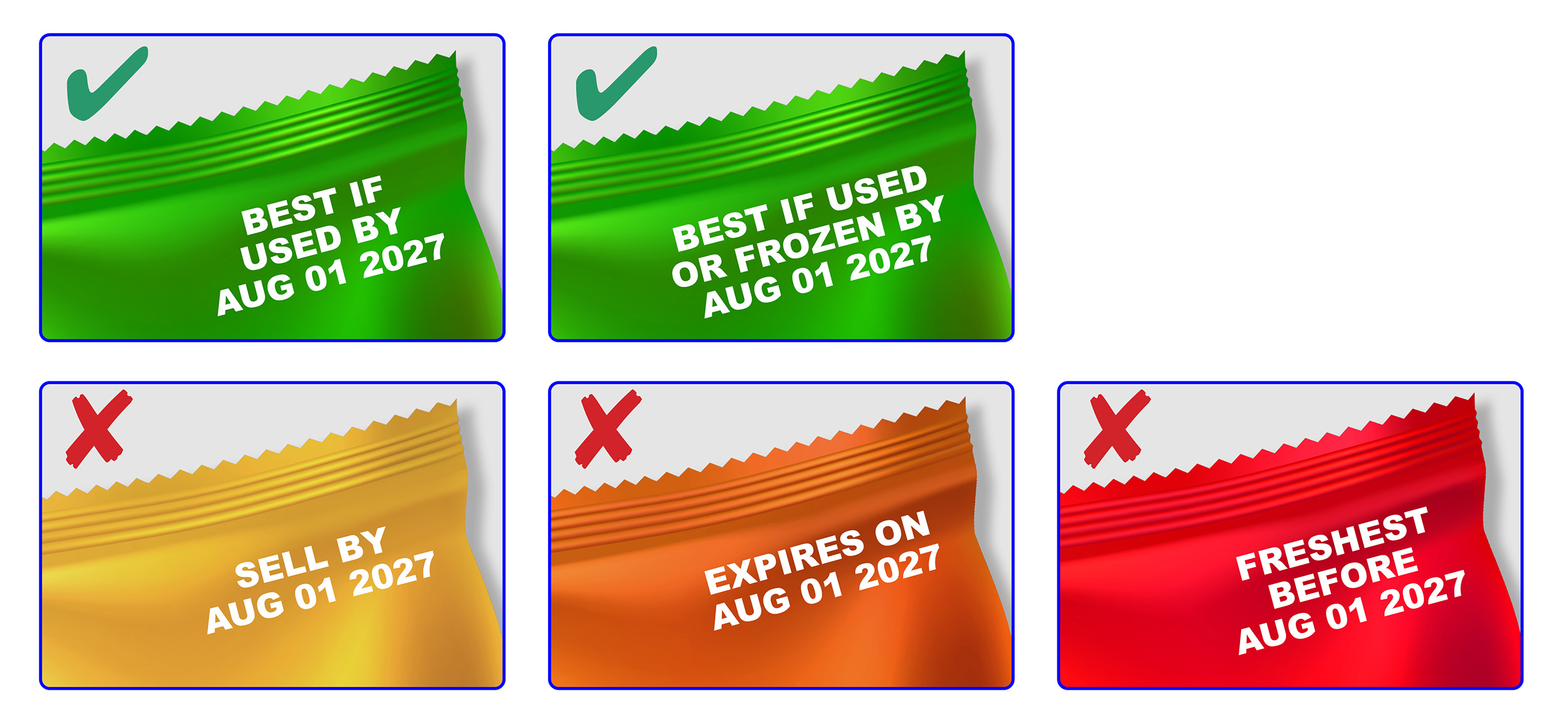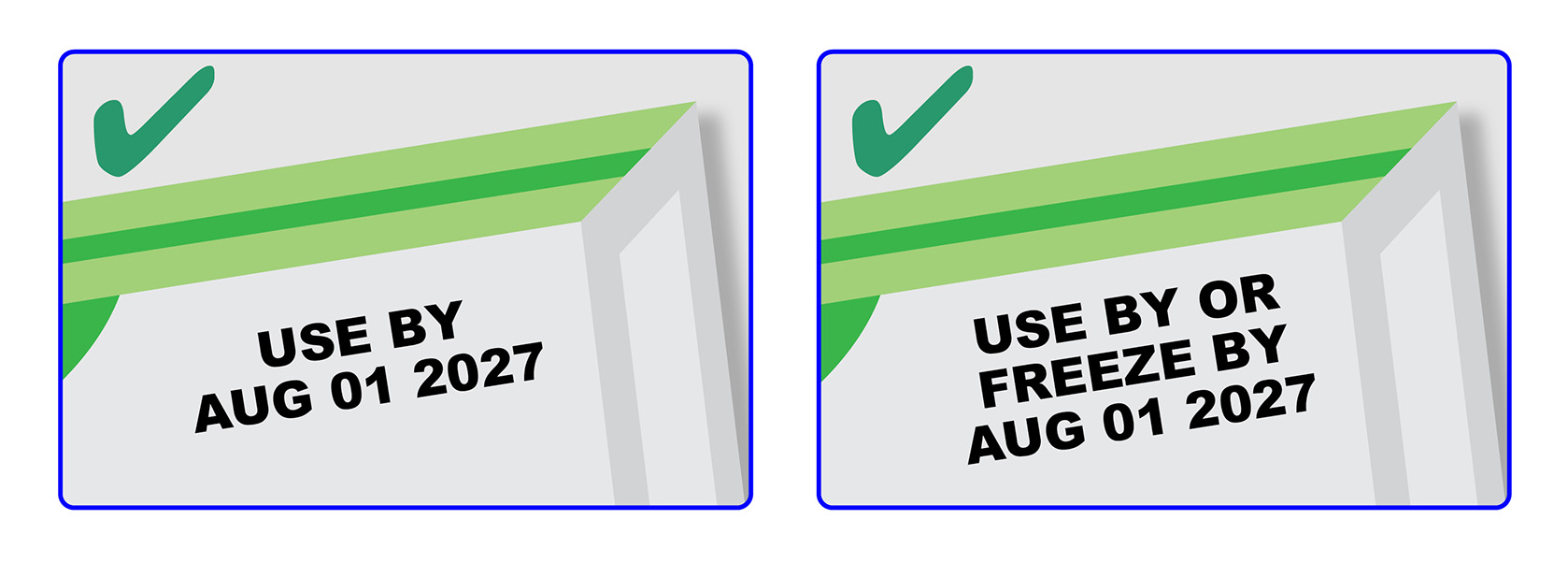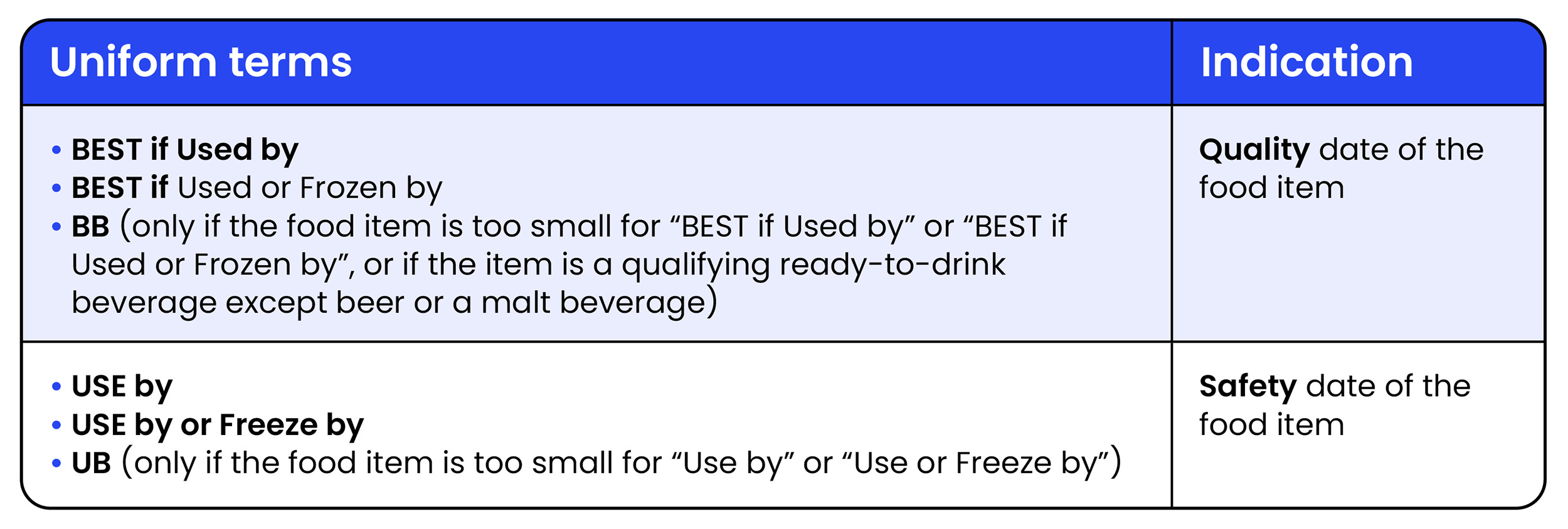California leads the way in standardized food date coding
On September 28, 2024, California’s governor signed Assembly Bill 660 into law, marking the introduction of a groundbreaking food date labeling standard. This new legislation aims to demystify expiration dates for California consumers, thereby aiding in the reduction of food waste. AB 660 introduces mandatory food date labeling reform, the first of its kind in the United States, standardizing the often confusing and inconsistent food date messages that contribute to substantial food waste in the state.
Mandatory food date labeling reform: key dates and terms
Starting July 1, 2026, the law will change how food dates are communicated to consumers. To signify the optimal quality of food products, labels must display “BEST if Used By” or “BEST if Used or Frozen By.” For matters of food safety, “Use By” or “Use or Freeze By” will become the standard terms. This shift aims to phase out the vague “sell by” phrasing and other unclear messages, which have historically led to consumer confusion and the needless waste of food.
Product quality labeling

Product safety labeling

Reducing food waste
The implementation of AB 660 is expected to make a significant impact on California’s approach to food waste. Californians currently discard around six million tons of food waste annually, much of it due to misinterpretation of date labels. The law not only aims to reduce methane emissions—a potent greenhouse gas—from landfills but to alleviate some of the financial burden of wasted food on households and the squandered natural resources used in food production and distribution.
What it means for food and beverage manufacturers
For most food and beverage manufacturers, setting their printer or laser’s message from “Sell by” to “Best if used by” is easy. However, their challenge is making sure that the new longer messaging fits on their product packaging and that their quality teams approve and confirm compliance with the regulation. Contract packagers must obtain the same approval from their customers’ quality teams.
Rene Montes, a Videojet sales engineer from California, has been discussing the implications of AB 660 with food and beverage manufacturers. He cautions, “It’s important that they remember that, without the right equipment, switching from a single line to a dual line code or more can affect the speed of production.” Nevertheless, Montes adds that most Videojet customers are in a good position with their advanced printers and lasers that are designed to adapt to new coding mandates while maintaining production line speeds.
It’s important they remember that, without the right equipment, switching from a single line to a dual line code or more can affect the speed of production.
Rene Montes, Sales Engineer at Videojet
The right message: communicating safety or quality
When a date is applied to a product, safety or quality must be communicated on the food or beverage item in a standardized message:

This new California food labeling legislation has garnered support from food banks, local governments, food recovery organizations, and environmental groups. AB 660 sets an important precedent that could inspire similar actions both in other states and at the federal level.
Stay ahead of the curve in code compliance with Videojet as your trusted partner. We are ready to evaluate your current operations and steer you towards the ideal solution for your packaging needs. Contact us now to help ensure your setup is fully compliant and future-proof.
